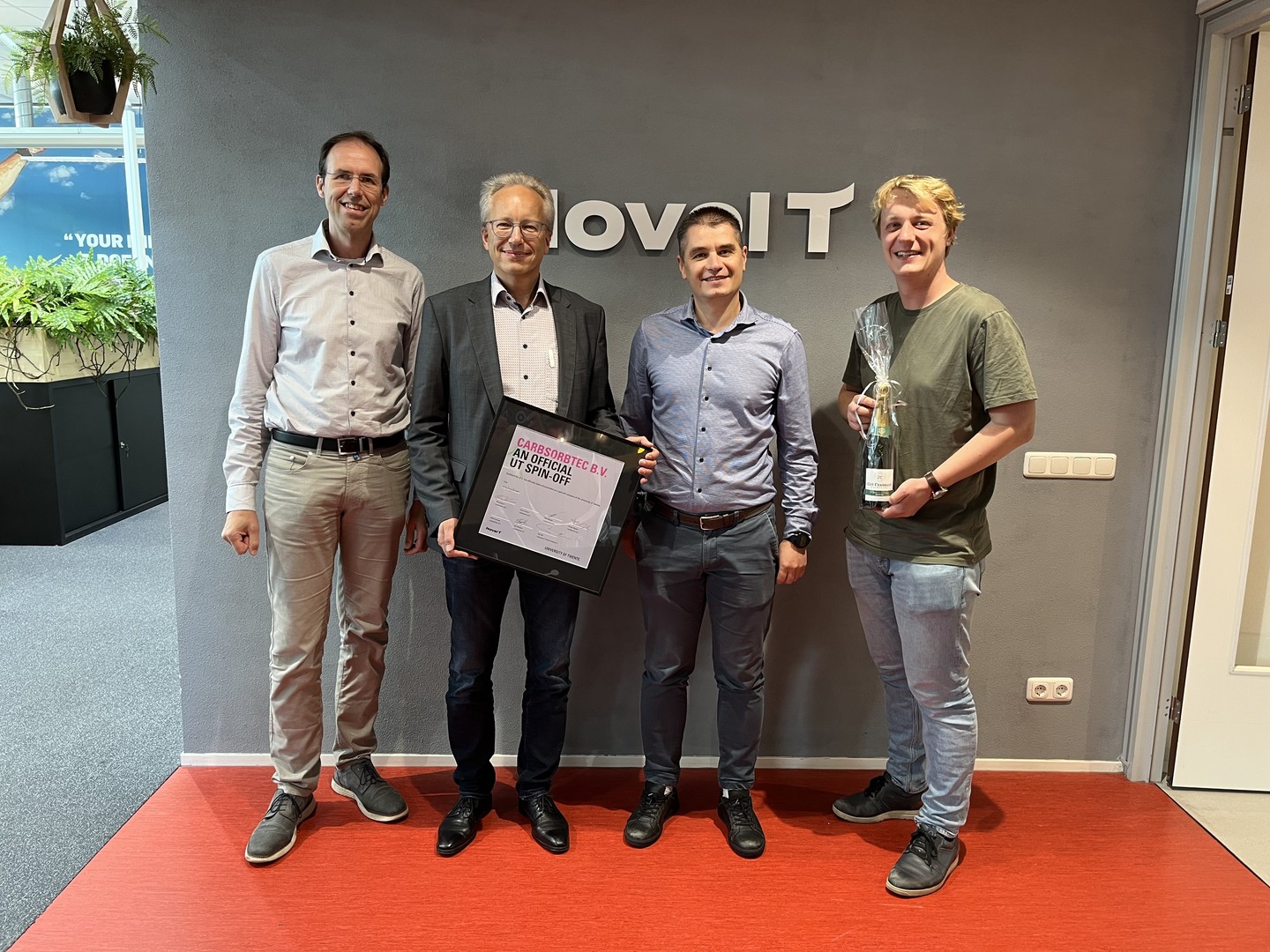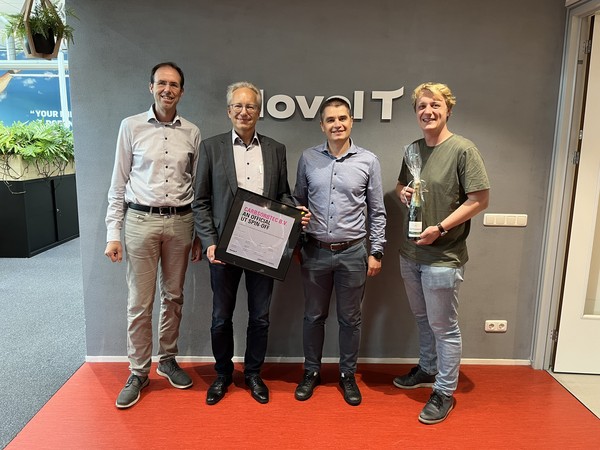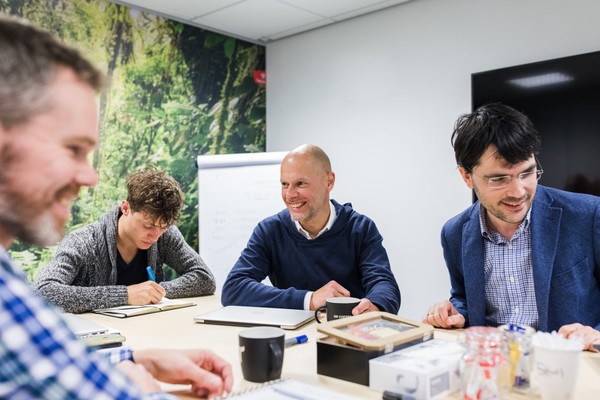cases >> CarbSorbTec
TWENTE CLAY INNOVATION EXTRACTS CO₂ FROM BIOGAS

TWENTE CLAY INNOVATION EXTRACTS CO₂ FROM BIOGAS
Climate change demands new solutions, and they don't always have to come from a high-tech lab. Sometimes the key lies in something as simple as clay. In Twente, a team of researchers developed a material that extracts CO₂ from biogas in an energy-efficient and affordable way. Their technology forms the basis for the new spin-off: CarbSorbTec.
"It started with a simple research question: can we capture CO₂ in clay?" says Prof. Frieder Mugele, Professor of Physics of Complex Fluids at the University of Twente. "Clay naturally has a layered structure. With certain types of clay, you can use ion exchange to adjust the distance between these layers so that CO₂ can easily bond between them. While methane - the main component of biogas - is not absorbed. This allows you to separate the two gases.”.
This method efficiently converts biogas into biomethane, a sustainable alternative to natural gas. Frieder: “Because our method requires hardly any energy, it is cheaper and more efficient than existing techniques. This also makes it suitable for smaller applications, such as on farms or at waste processing plants. It's a concrete and affordable alternative for those who want to generate energy locally and cleanly."
Blue-sky research leads to innovation
At the start of this fundamental blue-sky research, Frieder had no knowledge of 'biogas upgrading'. The original idea took a different direction, but along the way, the work led to an unexpected discovery. Frieder: "This underscores how fundamental research sometimes yields results that cannot be predicted in advance." Doctoral candidate Niels Mendel further developed the concept during his PhD, supervised by Igor Siretanu and Wim Brilman.
Global impact
CarbSorbTec's technology works in the lab and will soon be tested in practice. "We'll start pilots this fall at a farm and a water treatment plant," says Frieder. "If that works well, we can scale up." The potential impact is significant. Biogas, derived from manure and waste, among other things, consists of about 60% methane and 40% CO₂. By removing this CO₂, a sustainable alternative to natural gas is created: biomethane. This technology makes it possible to generate energy locally, affordably, and without fossil fuels, without expensive installations. This not only aligns with European climate goals but also makes energy accessible to places where it currently lacks.
The innovation can also make a difference in developing countries. "We were approached by a small organization in Madagascar looking for biogas solutions," says Frieder. "If they use our clay locally, they can produce light and run their engines. They don't need complicated infrastructure, just the right materials and some knowledge."
A protected discovery
To protect the innovation, the team applied for a patent. "That process takes a long time, but it was necessary," says Frieder. "We want our technology to be used, but responsibly, and with permission." According to Frieder, the support from Novel-T was indispensable. Frieder: “They helped us with the financing, the patent application, and setting up the company. They also provided excellent commercial input. That really made a difference.”
From CO₂ problem to circular dream
The plans for the future are ambitious. “We want to further develop the clay and also use it for other gases. Together with our partner, we will build the necessary equipment and produce the modified clay on a larger scale,” says Frieder. He also sees opportunities to turn CO₂ into a resource, instead of just a problem. Frieder: “A new economy needs to emerge based on clean CO₂. And we can contribute to that, as a supplier of solutions and perhaps also of reusable CO₂. In ten years, I hope our technology will be applied worldwide, from farms in Europe to villages that currently lack electricity. Not only to reduce CO₂ emissions, but also to make energy accessible."

"A new economy needs to emerge based on clean CO₂. We can contribute to that."
Frieder Mugele
Professor of Physics of Complex Fluids at the University of TwenteMore about
CarbSorbTec
CarbSorbTec is a spin-off from the University of Twente. The technology is based on clay materials that can capture CO₂ from biogas. This enables the production of low-cost and energy-efficient biomethane. The first field trials will begin in the fall of 2025.






